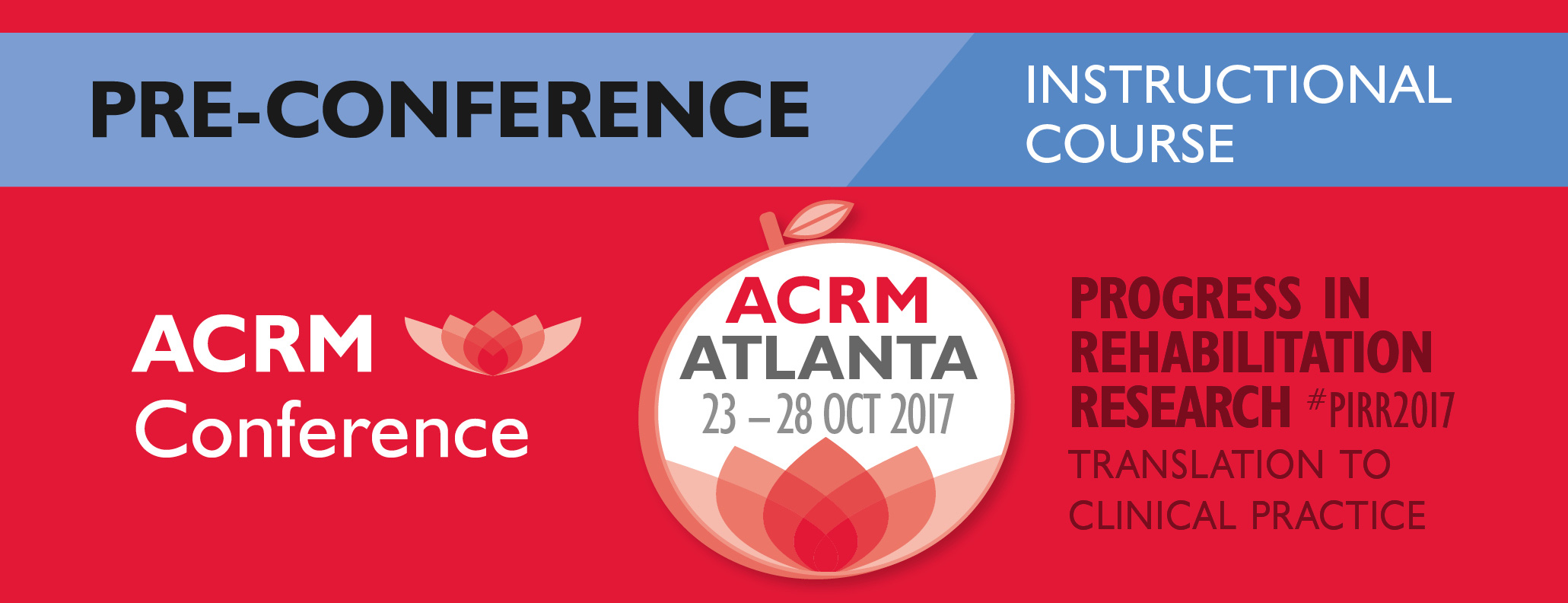WED 25 OCT // 8:30 AM – 12:30 PM
Primary Content Focus: Cross-Cutting
Secondary Content Focus: Measurement
This workshop will present a state-of-the art measurement system for assessment of neurological and behavioral function that is designed to bring a standard of measurement to practice and research, the NIH Toolbox®. Through this interactive course, we aim to equip attendees with the skills needed to select, administer, score, and interpret NIH Toolbox measures. We will cover the science behind Toolbox development, including an introduction to item response theory (IRT) and computer adaptive tests (CATs). We will describe each battery, its implementation in the NIH Toolbox iPad app, and available score reporting options. We will discuss NIH Toolbox accessibility and use with people with disabilities. Participants will then be given hands-on experience using the NIH Toolbox iPad app on iPads provided by us. Following an overview of recent findings on NIH Toolbox validation and use in clinical populations, the workshop will conclude with discussion of questions regarding clinical and research applications raised by course participants.
LEARNING OBJECTIVES
- Describe the advantages of modern psychometric test theory applications in assessment
- Select and administer specific NIH Toolbox® measures using the iPad app
- Manage, score, and interpret results from administration of NIH Toolbox®
- Discuss advantages and limitations of NIH Toolbox® use in rehabilitation clinical and research settings
PRESENTERS
Cindy Nowinski, MD, PhD
Northwestern University Feinberg School of Medicine
Richard Gershon, PhD
Northwestern University Feinberg School of Medicine
David Tulsky, PhD
University of Delaware
Allen Heinemann, PhD
Northwestern University
BIOS

Dr. Cindy Nowinski is a licensed clinical psychologist and Research Associate Professor in the Department of Medical Social Sciences, Northwestern University Feinberg School of Medicine. Her research focuses on improving health and healthcare quality through the development and application of outcomes and outcome measures to clinical research and care. She has extensive experience in developing adult and pediatric person-centered self-report and performance assessments including serving as Scientific Director of the NIH Toolbox initiative and co-investigator on Neuro-QoL (a Health-Related Quality of Life Measurement System for People with Neurological Disorders) and several Patient Reported Outcomes Measurement Information System (PROMIS) projects. She currently provides scientific support, consultation and education on use of NIH Toolbox, PROMIS and Neuro-QoL measures, including coordinating and leading training workshops in NIH Toolbox test administration.

Richard Gerhson, PhD, is widely recognized for his expertise in advancing the use of technology for increasing the impact and reach of psychometrically robust health measurements. Having completed PhD work in both Clinical and Personality Psychology from Northwestern University, Dr. Gershon is the Vice Chair for Research in Medical Social Sciences and a Professor in Medical Social Sciences and Preventive Medicine-Health and Biomedical Informatics at Northwestern University Feinberg School of Medicine. He is a leading expert in the application of Item Response Theory (IRT) in individualized and large scale assessments and has developed item banks and Computerized Adaptive Testing (CAT) for educational, clinical, and health applications – including cognitive, emotional, and motor applications. He is the immediate past co-PI for Research Coordination Unit: Translating Basic Behavioral and Social Science Discoveries into Interventions and the National Children’s Study: Vanguard Study (South ROC). He also has acted as the principal investigator for the NIH Toolbox for the Assessment of Neurological and Behavioral Function, the NIH Roadmap Patient – Reporting Outcomes Measurement Information System (PROMIS) Technical Center, AAD-PEPR: Asthma and Atopic Dermatitis Validation of PROMIS Pediatric Instruments, Environmental Influences on Child Health Outcomes (ECHO) PRO Measurement Core, and as a co-investigator for the National Person-Centered Assessment Resource.

David S. Tulsky, PhD, has nearly 30 years of experience developing tests and measurement instruments and is an internationally recognized as a leader in the development and validation of common data elements and outcomes measurement tools for use in rehabilitation populations. Dr. Tulsky is a Professor in the Departments of Physical Therapy and Psychological & Brain Sciences and Director of the Center on Assessment Research and Translation at the University of Delaware. Previously, he was Professor and Director of Research in the Department of Physical Medicine and Rehabilitation at the University of Michigan Medical School. Prior to his work at UM, Dr. Tulsky was the Vice President of Outcomes & Assessment Research and the Director of Spinal Cord Injury Research at the Kessler Foundation. He also served as the Principal Investigator and Director of the Northern New Jersey SCI System and as a Co-Investigator on the Northern New Jersey TBI System. During this time, he also held a joint appointment at the University of Medicine and Dentistry of New Jersey/New Jersey Medical School as an Associate Professor in the Department of PM&R. Dr. Tulsky has expertise in the development and validation of patient reported outcomes (PRO) and neuropsychological assessments.

Allen W. Heinemann is a Professor in the Department of Physical Medicine and Rehabilitation at Northwestern University’s Feinberg School of Medicine and Director of the Center for Rehabilitation Outcomes Research at the Rehabilitation Institute of Chicago. He completed a doctoral degree in psychology at the University of Kansas, is a diplomate in Rehabilitation Psychology, and a fellow of the American Congress of Rehabilitation Medicine and the American Psychological Association. He is a past-president of the American Congress of Physical Medicine and Rehabilitation and the Rehabilitation Psychology division of the American Psychological Association. He serves as co-Editor-in-Chief for the Archives of Physical Medicine and Rehabilitation, and is on the editorial boards of Rehabilitation Psychology, Journal of Head Trauma Rehabilitation, and several other journals. He is the author of more than 250 articles and is the project director of an Advanced Rehabilitation Research Training Award from the National Institute on Disability, Independent Living, and Rehabilitation Research. He received the Distinguished Career Award from the Rehabilitation Psychology division of APA.
ACRM Annual Conference, Progress in Rehabilitation Research (PIRR#2017)
CORE: 25 – 28 OCT 2018 // HILTON ATLANTA, USA // PRE-CONFERENCE 23 – 25 OCT
REGISTER ONLINE HERE or Register by Phone: +1.703.435.5335
 |
 |
 |
 |











